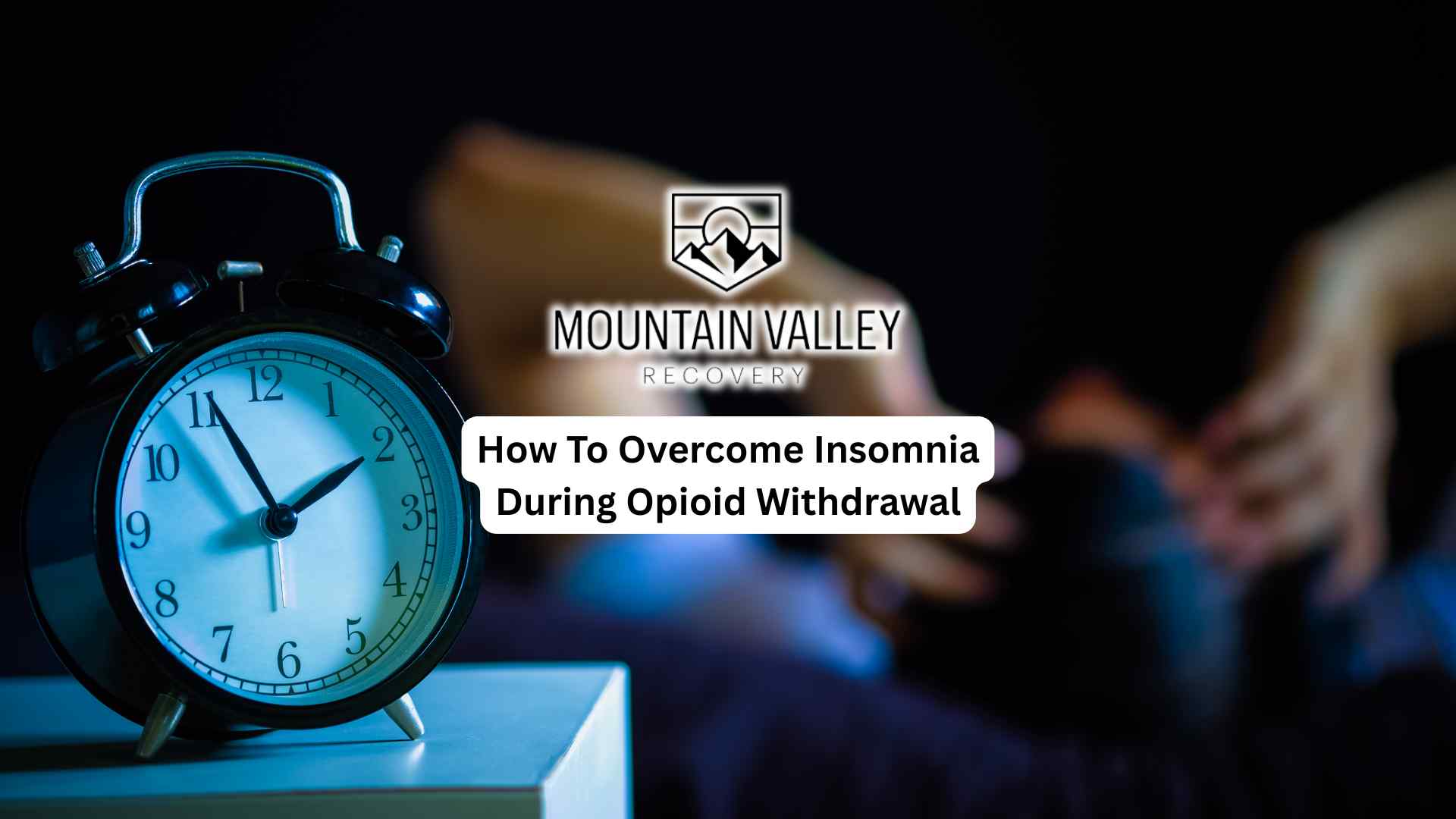Opioid withdrawal is a challenging phase in the journey toward recovery from substance use disorder. Among its many distressing symptoms, insomnia stands out as one of the most common and disruptive. Difficulty falling asleep or staying asleep during opioid withdrawal can exacerbate other withdrawal symptoms, increase stress, and elevate the risk of relapse.
This article will explore the connection between opioid withdrawal and insomnia, examining why sleep disturbances occur, how they impact the recovery process, and what strategies can help manage them.
Understanding Opioid Withdrawal Insomnia
Opioids profoundly affect the brain’s chemistry, particularly neurotransmitters involved in regulating sleep, such as dopamine, serotonin, and orexin. When opioid use stops abruptly, the brain’s delicate balance is disrupted, leading to withdrawal symptoms including intense insomnia.
During opioid use, the sedative effects of the drugs often mask underlying sleep problems. When the drug is removed, the body struggles to regulate natural sleep cycles, resulting in difficulty falling asleep, frequent awakenings, and poor sleep quality. This insomnia is not merely a nuisance. It reflects the brain and body’s adjustment to life without opioids.
Individuals struggling with opioid withdrawal-induced insomnia should seek professional opioid addiction treatment, where sleep disruptions can be safely managed as part of comprehensive recovery care. Addressing insomnia in a structured setting supports long-term healing and helps prevent relapse.
The Impact of Insomnia on Recovery
Sleep deprivation during opioid withdrawal can significantly intensify physical symptoms such as muscle aches, sweating, and nausea, making the withdrawal experience more uncomfortable and difficult to endure. When the body is deprived of adequate rest, its ability to repair and regulate itself diminishes, which can prolong these physical discomforts.
Poor sleep impairs emotional regulation by disrupting the brain’s ability to manage stress and mood, leading to heightened anxiety, irritability, and depression. These emotional challenges can create a vicious cycle where distress disrupts sleep, and poor sleep, in turn, makes emotional instability even harder to manage..
Together, these physical and emotional effects undermine the mental and physical resilience necessary to maintain sobriety, substantially increasing the risk of relapse. When individuals are exhausted and emotionally fragile, their capacity to cope with cravings and triggers weakens, making it harder to stay committed to recovery.
Restorative sleep plays a crucial role in healing the nervous system, which has often been damaged by prolonged opioid use. Quality sleep supports neuroplasticity (the brain’s ability to reorganize and heal itself) and helps rebalance neurotransmitters involved in mood and reward pathways.
Addressing insomnia early in the withdrawal process not only alleviates immediate suffering but also lays the foundation for improved long-term recovery outcomes and a better overall quality of life.

Evidence-Based Strategies to Manage Insomnia During Withdrawal
Establishing Healthy Sleep Habits
- Consistent Sleep Schedule: Go to bed and wake up at the same time every day to regulate your internal clock.
- Relaxing Pre-Sleep Routine: Engage in calming activities before bedtime, such as reading, gentle stretching, or listening to soothing music.
- Avoid Stimulants: Limit caffeine and nicotine intake, especially in the afternoon and evening.
- Limit Screen Time: Reduce exposure to blue light from phones, tablets, and computers at least an hour before bed.
Lifestyle and Environmental Adjustments
- Regular Exercise: Moderate physical activity during the day promotes better sleep, but avoid vigorous exercise close to bedtime.
- Natural Light Exposure: Spend time outdoors during daylight hours to help reset your circadian rhythm.
- Dietary Considerations: Avoid heavy or spicy meals before bed. Incorporate sleep-supportive nutrients like magnesium, potassium, and vitamin B complex.
- Comfortable Sleep Environment: Ensure your bedroom is cool, quiet, and dark. Use earplugs or white noise machines if necessary.
Psychological and Behavioral Techniques
- Mindfulness and Relaxation: Practices such as meditation, deep breathing, or progressive muscle relaxation can reduce anxiety and prepare the mind for sleep.
- Cognitive Behavioral Therapy for Insomnia (CBT-I): This evidence-based therapy helps identify and change thoughts and behaviors that interfere with sleep.
- Support Networks: Engage with peer support groups, counselors, or recovery programs to manage stress and share coping strategies.
Medical and Pharmacological Approaches
While non-pharmacological methods are preferred, some individuals may benefit from medical interventions under the guidance of a professional. Certain medications, like orexin receptor antagonists (e.g., suvorexant), show promise in treating withdrawal-related insomnia by targeting sleep-wake regulation without the addictive potential of traditional sedatives.
However, caution is necessary with common sleep aids such as benzodiazepines or antihistamines, as they can be habit-forming or interact negatively with opioid withdrawal.
When to Seek Professional Help
If insomnia persists beyond a few weeks, severely impacts daily functioning, or is accompanied by worsening mental health symptoms, it is crucial to seek professional assistance. Addiction treatment centers often offer integrated care that addresses both withdrawal symptoms and sleep disturbances.
Sleep specialists can also provide targeted therapies and assessments to rule out other sleep disorders that may complicate recovery.
Long-Term Outlook and Recovery
Insomnia during opioid withdrawal typically improves over time as the brain’s chemistry stabilizes. However, some individuals may experience lingering sleep difficulties well into long-term recovery.
Maintaining healthy sleep habits and ongoing participation in recovery programs are vital to sustaining sobriety and overall well-being.
Final Thoughts from Mountain Valley Recovery
Overcoming insomnia during opioid withdrawal is a critical step in the path to lasting recovery. By adopting healthy sleep habits, making lifestyle adjustments, utilizing behavioral techniques, and seeking medical guidance when necessary, individuals can significantly improve their sleep quality and resilience.
At Mountain Valley Recovery in Utah, our men’s-only program is uniquely equipped to address both the physical and psychological toll of opioid use disorder, including sleep disturbances. Through a comprehensive blend of clinical therapies, experiential learning, and holistic support, all set within a transformative ranch environment, we help clients regain control, improve sleep, and rebuild healthier, more sustainable lives.





